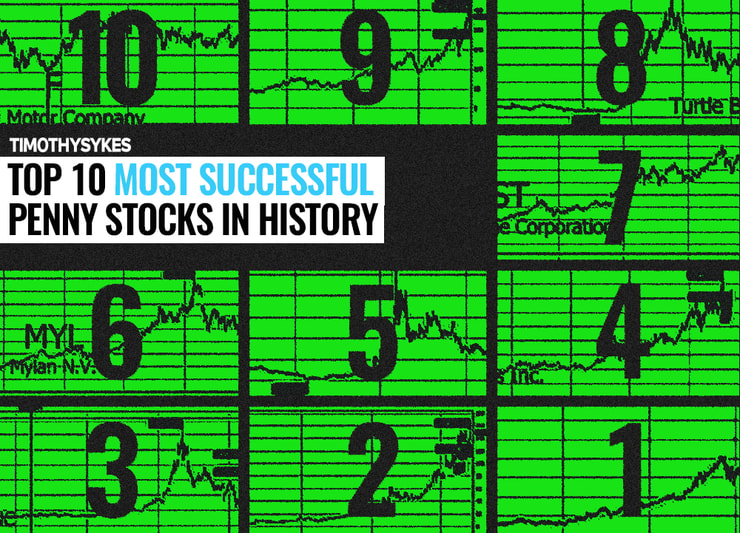Cybersecurity stocks are shares of companies that build tools and platforms to block data breaches, malware, and every new attack threatening digital assets—exactly the kind of nonstop demand I like when momentum meets necessity. Threat headlines shift prices fast, so mastering entry and exit rules around earnings and breach news can turn risk into opportunity. Study these names, watch the volume, and let price action confirm your plan.
Check out my AI penny stocks watchlist for more picks!
Table of Contents
5 Cybersecurity Stocks To Watch
| Ticker | Company | Core Security Focus |
|---|---|---|
| ZS | Zscaler | Zero-trust cloud protection |
| PANW | Palo Alto Networks | Broad platform firewalls and AI analytics |
| CRWD | CrowdStrike | Endpoint threat hunting and incident response |
| FTNT | Fortinet | Network firewalls and secure access service edge |
| OKTA | Okta | Identity authentication and access management |
Before you send in your orders, take note: I have NO plans to trade these stocks unless they fit my preferred setups. This is only a watchlist.
The best traders watch more than they trade. That’s what I’m trying to model here. Pay attention to the work that goes in, not the picks that come out.
If you do decide to make a trade, I’ve got one piece of advice… USE AI TO TRADE AI!
XGPT is the AI tool my team and I have built to spot high-odds stock setups—faster, smarter, and more efficiently than any human can. You don’t have to be a math genius or some tech wizard. XGPT analyzes patterns, price action, and data the way my top students do… only it does it 1,000x faster.
Whether you like it or not, AI is part of modern trading. Other traders are already using it, shouldn’t you?
Zscaler (NASDAQ: ZS)
Zscaler leads the zero-trust movement by routing traffic through its cloud exchange and scanning for malware, encryption gaps, and policy violations. The company’s AI engine now ingests billions of daily events, spotting new attack vectors before legacy appliances can patch up.
Revenue grew 23 percent year over year, billings rose 25 percent, and management guided for another strong quarter, proving customers see Zscaler as core infrastructure investment rather than optional software. More data equals sharper threat models, which drives cross-selling and locks in renewal cash flow.
Shares still trade at a high valuation, yet the stock keeps respecting its 50-day line because money managers value predictable growth. For trading, wait for clean breakouts above recent resistance or pullbacks to rising support near moving averages. Tight spreads and heavy volume spikes around earnings give clear signals. If guidance stays above analyst targets and cash flow remains positive, ZS can keep trending even when broader tech cools.
Palo Alto Networks (NASDAQ: PANW)
Palo Alto Networks anchors many enterprise security stacks with Next-Gen firewalls, AI-driven analytics, and an expanding Secure Access Service Edge suite. Recent earnings beat revenue estimates at $2.29 billion, but gross margin slipped, sparking a quick selloff that offered disciplined traders a second-chance entry. Finance hiccups matter less if top-line growth and annual recurring revenue stay intact, and Palo Alto’s platformization strategy continues to win large deals across banking and healthcare.
Valuation feels steep against peers, yet option flow shows funds still betting on upside whenever product launches or acquisitions hit the wire. The $500 million Protect AI purchase signals management’s intent to lead the AI security arms race—watch follow-through volume after each M&A headline. Trade by pairing earnings catalysts with strict risk management: partial scale-ins near pullbacks, scale-outs into strength. If platform ARR climbs double digits and free-cash guidance stays firm, PANW remains a candidate for momentum swing setups.
More Breaking News
- SaverOne: The Latest Updates and Market Trends
- Core Scientific Unexpected Surge: Could Acquisition Boost Growth?
- Enovix Surges After $60M Share Buyback Announcement
CrowdStrike (NASDAQ: CRWD)
CrowdStrike’s Falcon platform hunts threats at the endpoint level, using machine learning to quarantine malware and block lateral movement in seconds. Its incident-response team publishes real-time intelligence that feeds directly into the platform. Annual recurring revenue keeps expanding, but the share price rallied so quickly that technical indicators flashed overbought—even solid guidance can trigger profit-taking.
For trading, watch the 21-day exponential average: breaks and reclaim patterns often precede multi-point runs. Institutions like clean fundamentals, and CrowdStrike’s balance sheet still shows strong cash plus rising operating margin. If macro fears knock price back to historical valuation bands while ARR growth holds above 25 percent, a staged position can capture the next leg. Keep alerts on breach headlines because every high-profile attack renews interest in rapid-response platforms and sparks volume spikes that reward prepared traders.
Fortinet (NASDAQ: FTNT)
Fortinet delivers hardware firewalls, secure SD-WAN, and SASE services, giving customers an integrated network security posture. Institutions own about 70 percent of shares, and the company’s founders still hold meaningful insider stakes, aligning leadership with market performance. While a P/E near 46 feels rich, bulls point to firewall refresh cycles and a push into AI-powered threat analytics to justify growth status. High ownership concentration can magnify moves when large funds adjust weightings, so monitor block trades around earnings.
Recent channel checks show steady demand, though some partners flagged go-to-market turnover that could slow execution. Price jumped 80 percent year to date, then paused under resistance; pullbacks to the 100-day average have offered reliable bounce entries in the past. Focus on services revenue trends and Secure Access expansion. If pipeline commentary stays upbeat and turnover stabilizes, Fortinet can defend its premium and keep trending with the broader cybersecurity sector.
Okta (NASDAQ: OKTA)
Okta controls identity authentication for more than 200,000 customers, letting only approved users and AI agents access critical data. With machine identities multiplying across cloud applications, Okta’s addressable market expands fast, yet macro worries and tariff headlines dragged shares 16 percent in May. The company beat earnings but held guidance flat, warning of choppy enterprise spending; price shook out weak hands and then rebounded as value buyers stepped in.
Students often ask how to trade these post-earnings swings—my answer is simple: follow the volume.
Watch for base formation above the 200-day moving average; reclaiming that line often signals funds are done trimming. Okta already partners with big banks and tech firms on compliance frameworks, so new mandates or breach news can revive momentum quickly. If management shows stabilizing renewal rates and outlines clear AI monetization paths, risk-reward tilts positive even with wider macro uncertainty.
AI Cybersecurity Stocks: The Future of Digital Defense
Let’s get something important out of the way—all cybersecurity stocks are AI cybersecurity stocks.
For a more offensive security selection, check out my rundown of the best AI defense stocks on the market!
AI cybersecurity stocks harness artificial intelligence to scan enterprise systems for every hidden vulnerability, prioritizing threats before attackers reach sensitive information. Businesses, governments, and even small organizations now process oceans of credit card data and personal records, and they cannot add employees fast enough to keep pace with new malware. Vendors that automate detection and response become growth stocks because their technology stretches limited security resources while protecting users worldwide.
In my trading classroom, I show students how rising adoption rates and clear performance metrics—billings, customer retention, and recurring revenue—signal momentum long before most valuation models catch up.
These companies monetize research data collected from millions of endpoints, transforming raw content into real-time threat feeds that sharpen every product update. As a result, revenue tends to compound at a higher growth rate than the broader tech industry. Analysts track this flywheel closely, and sector newsletters often flag upgrades the moment new platform modules win marquee customers. When those upgrades hit the newswire, price usually moves first—so watch volume, read the filings, and be ready.
How to Trade the Best-Performing Cybersecurity Stocks
Trading top cybersecurity names starts with understanding that breach headlines move faster than quarterly financial releases. When a cloud provider admits a data leak or a bank’s credit cards go offline, stocks linked to strong protection platforms often gap up at the open while weaker peers fade.
I teach traders to use objective performance metrics—billings acceleration, cash-flow margin, and contract growth—rather than vague sentiment to judge whether a move can last. Set risk limits with simple valuation models: if forward sales multiples stretch far beyond historic bands without fresh catalysts, trim and wait for the chart to reset.
Liquidity matters. The best setups appear when institutions rotate capital into leaders with proven products and clear pricing power, not into thinly traded flyers. Scan pre-market news, then check how price reacts once the bell rings; sustained demand shows real money flowing, not just individuals chasing headlines.
You’re not done—record every trade in a journal and review the analysis weekly. Continuous feedback sharpens execution and lets you adapt when the industry pivots to new AI modules or compliance standards. My own results—and those of my students—prove that disciplined planning beats hunches in this fast-moving world.
And remember—you still need to play your own defense:
Key Takeaways
- Cybersecurity remains a high-growth tech sector because attackers never stop probing for vulnerabilities.
- Strong data loops, AI innovation, and sticky subscription models drive recurring revenue that supports sustained share momentum.
- Trading success comes from timing entries around news catalysts and respecting risk, not from chasing every spike.
- Sector ETFs offer exposure, but focused positions in leaders with clear performance trends often deliver sharper rewards.
This is a market tailor-made for traders who are prepared. Cybersecurity stocks thrive on volatility, but it’s up to you to capitalize on it. Stick to your plan, manage your risk, and don’t let FOMO drive your decisions.
These opportunities are fast and unpredictable, but with the right strategy, you can make them work for you.
If you want to know what I’m looking for — check out my free webinar here!
Frequently Asked Questions
Is cybersecurity still a growth sector in 2025?
Cybersecurity remains a growth sector in 2025 because data breaches and AI-enhanced attacks keep boards funding security budgets even when other IT projects slow. Analysts project double-digit spending increases across cloud protection, identity access, and zero-trust tools, so revenue opportunities persist for companies delivering scalable security solutions. Traders can monitor billings growth and breach news to judge which stocks capture that spending the fastest.
How Does AI Enhance Cybersecurity?
AI enhances cybersecurity by scanning massive network traffic in real time, spotting anomalies that signal malware or unauthorized access, and automating responses like isolation or encryption before data loss occurs. Vendors feed billions of events through machine-learning models, improving detection accuracy and lowering false positives. These automation gains reduce dependence on scarce analysts and strengthen overall protection levels for customers.
Are cybersecurity stocks good for long-term portfolios?
Cybersecurity stocks can fit long-term portfolios if traders seek exposure to a tech theme with steady expansion and high switching costs, though volatility remains higher than broader market averages. Investors often diversify through ETFs to smooth single-name risk, while active traders focus on leading companies with strong cash flow and competitive advantages. Choosing positions based on consistent execution and clear growth road maps improves odds of holding through pullbacks.











Leave a reply